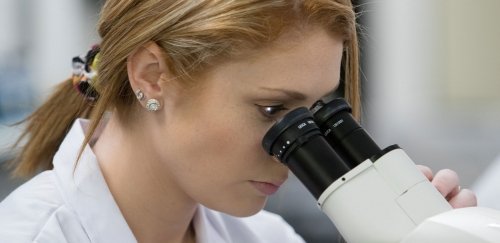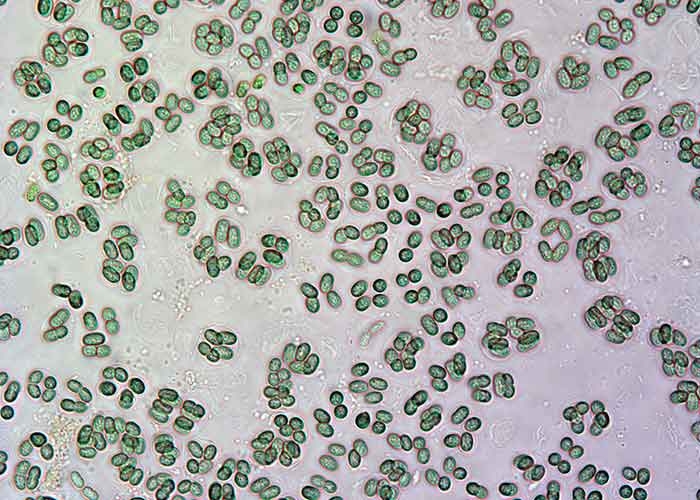$251K Champlin Grant Funds 2 Bio Labs & Equipment
- News & Events
- News
- $251K Champlin Grant Funds 2 Bio Labs & Equipment

This grant will provide upgraded lab space and equipment for teaching and learning.
The Champlin Foundations have awarded Rhode Island College a $251,300 grant to construct a new Organism Growth Laboratory, to redesign and renovate the Laboratory Preparatory Room and to purchase 48 new microscopes and other lab equipment in the Department of Biology.
“The expanding life sciences industry in Rhode Island demands workers who have a strong foundation in biology, and Rhode Island College’s Biology Department has been a leader in transforming its curricula to be responsive to the state’s workforce needs,” said Rhode Island College President Frank D. Sánchez. “I am thrilled that The Champlin Foundations have chosen to support the work of our biology faculty who are providing high-quality learning experiences for our students and preparing them for graduate study and careers in the sciences.”
The new Organism Growth Laboratory will provide a space for culturing a variety of life forms: plants, microorganisms and invertebrates to support research and active experimentation in biology courses that have laboratory components. The room will house a variety of tanks and containers tailored to the indigenous environment of each life form and adjusted for humidity, water, light, etc.
Rhode Island College Chair and Professor of Biology Rebeka Merson noted that because of the continuous availability of organisms in the lab, students will have multiple opportunities to study them. Research may be conducted on one species or involve comparing the growth and development of different species or learning culturing techniques.
Maintaining organisms in-house will also lessen the department’s dependence on external vendors. “Though we order organisms each semester, they are sometimes DOA due to weather conditions or a delay in shipment,” she said.

The complete overhaul and redesign of the Laboratory Preparatory Room is much needed as it has not been modernized since its construction in the 1970s. This space is used by faculty and students across the biology program to prepare for classroom laboratory activities and research projects. Improvements will provide users with a safe, well-designed and fully equipped space.
Along with new paint, flooring and lab-grade furniture, including tables, workbenches, shelving units and storage cabinets, improvements will be made to the walk-in refrigerator (the cold room), a floor-to-ceiling stainless steel space with shelves and benches used for research activities that require a cold environment.
This lab will also gain two major pieces of lab equipment: an autoclave (sterilizing machine) and a Milli-Q/Reverse Osmosis (for making distilled water).
The Champlin investment will also enable the Biology Department to purchase 24 compound light and 24 dissecting/stereo microscopes. Compound light microscopes allow the viewer to see the interior of thin specimens as light passes through the specimen. Dissecting/stereo microscopes have less magnifying power than compound microscopes and are used to observe the surface features of specimens.
“For many years The Champlin Foundations have supported the upgrade and refurbishing of RIC’s laboratories,” Merson said. “It’s exciting to know that because of this grant our department will be able to employ high-quality, more sophisticated technology in more efficient workspaces. From the faculty’s perspective, we’ll have better tools for our teaching and research, but from the students’ perspective, they’re going to see that our institution is improving, upgrading and investing in their education. I think that’s going to go a long way.”
Rhode Island College’s Biology Department offers a B.S. in biology; a B.S. in health sciences, with concentrations in dental hygiene, food safety, human services, medical laboratory sciences and respiratory therapy; a B.S. in medical imaging, with concentrations leading to certification in diagnostic medical sonography, magnetic resonance imaging, medical imaging management, nuclear medicine technology, radiologic technology and RT computed tomography; and an M.A. in biology.
This is the 10th grant the Champlin Foundations have awarded Rhode Island College since 2007, totaling more than $2 million.
